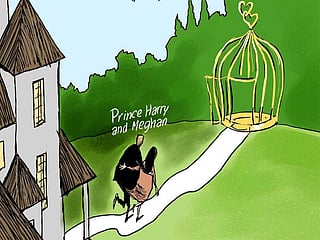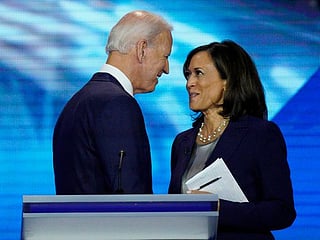Hariri calls on Hezbollah to turn in mastermind behind father’s 2005 murder
Tells Iran-backed party era of political crimes with impunity has ended

Also In This Package
Abu Dhabi: Lebanon’s former Prime Minister Saad Hariri Tuesday called on Hezbollah to turn in the man held responsible for his father’s 2005 assassination, shortly after a UN-backed tribunal said a commander from the Iran-backed group was responsible for the slaying.
Hariri attended Tuesday’s session and told reporters after the verdict that he and his family accepted it.
Writing on Twitter, he called it a “historic moment” and “a message to whoever carried out and planned this terrorist crime that the era of using crime for politics without punishment and without a price has ended.”
“The [Special Tribunal for Lebanon] proved that one of Hezbollah’s commanders carried out the operation,” Hariri told Al Arabiya in an interview.
Hariri said that from the time his father was killed, “We wanted justice, and we call on this Ayyash to be turned in to the international tribunal.”
Salim Jamil Ayyash, the convicted lead defendant, was charged with committing a terrorist attack by means of an explosive device, intentional homicide of Hariri and 21 other victims, and attempted intentional homicide of 226 additional people.
The judges noted that Ayyash had an affiliation with Hezbollah and that the accused were all supporters of the group, but the verdict also stopped short of directly pointing to responsibility to Hezbollah in the attack.
Three defendants were charged with being accomplices in these acts.
A fifth accused, Mustafa Amine Badreddine, a top Hezbollah commander, was killed in Syria in 2016 and was subsequently removed from the case.
The tribunal found Tuesday that there was enough evidence to convict Ayyash in absentia of the all the charges against him.
“Hezbollah needs to know that it [is responsible] for this crime. And the accused should be turned in,” Hariri told Al Arabiya.
Some Lebanese, including victims waiting 15 years for justice, voiced disbelief at the verdict that acquitted three other Hezbollah members and found no evidence of the involvement of the leadership of Hezbollah or the Syrian government.
“I am shocked. Instead of the network (of culprits) expanding, it is now one superman who has done all of that?” said Sanaa Al Sheikh, who was wounded in the February 14, 2005 bomb blast. She added that she had never expected an outcome like this.
“They should pay us back the money they got,” said Mahmoud, speaking from a mainly Sunni Muslim district of Beirut loyal to Hariri, referring to the roughly $1 billion cost of the trial.
There was only silence from Hezbollah, which denies any involvement in the bomb attack. Fireworks were briefly heard in Hezbollah’s stronghold in Beirut’s Shiite Muslim southern suburbs.
To critics of the tribunal, the prosecution of a few low-level Hezbollah operatives is a far cry from the findings of United Nations investigators who were sent to Beirut soon after the assassination.
In a report, these investigators called the killing an elaborate professional conspiracy that required “substantial logistical support,” considerable financing and “military precision in its execution.”
Detlev Mehlis, a German prosecutor who led a second inquiry, ended a six-month investigation in 2005 with a list of close to 20 suspects, including several senior Lebanese and Syrian officials.
Diplomats said at the time that Mehlis had reluctantly ended his mission because he had been warned about two assassination plots against him. At least two Lebanese police officers who assisted the tribunal’s investigations have been killed.
The prosecutors built their case largely on circumstantial evidence, much of it extensive records of cellphones used as operatives covertly tracked Hariri’s movements for weeks.








